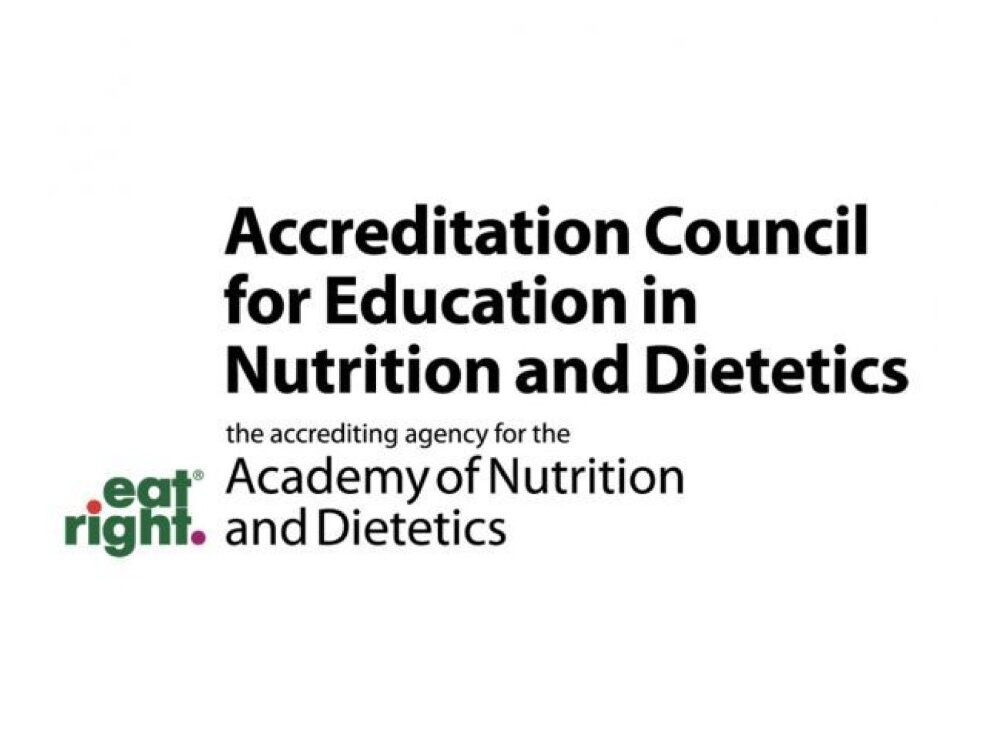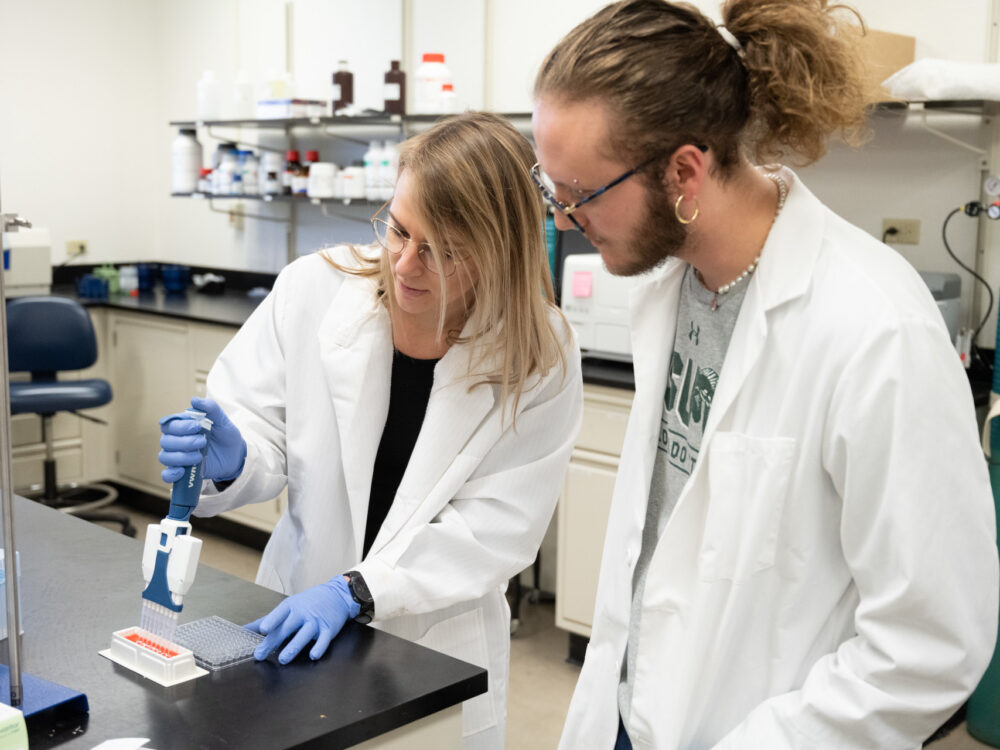Do you want to become a Registered Dietitian?
Wondering how to become a registered dietitian nutritionist? The Dietetics and Nutrition Management concentration within the major of Nutrition and Food Science is a great choice if you’re considering becoming a practicing nutritionist or a registered dietitian.
NOTE: A master’s degree and dietetic internship are required to become a registered dietitian nutritionist. The dietetic internship is not part of the undergraduate program. The internship is independent of the academic degree and requires successful acceptance into a program after your bachelor’s degree.
The Dietetics and Nutrition Management Concentration will provide you with the following:
- Competencies, knowledge, and skills required to work in the dietetics profession
- Critical thinking and problem-solving skills in clinical and community nutrition and food service management
The Accredited Didactic Program in Dietetics (DPD) provides you with the necessary skills to become a practicing nutritionist and starts you on the path to becoming a registered dietitian. Note: This option can be combined with the Master of Public Health program where you can earn your bachelor’s degree and a Master of Public Health degree in five years saving you time and money!
Meet one of our Nutrition and Food Science students and find out more about what it’s like to be a student in this concentration.
Audio Described Version of Meet the CHHS Rams | Food Science and Human Nutrition’s Hannah Sykes
Dietetics and Nutrition Management Classes
Major in Nutrition and Food Science, Dietetics and Nutrition Management Concentration, Accredited Didactic Program Option
Frequently Asked Questions
What is the Accredited Didactic Program in Dietetics?
A Didactic Program in Dietetics (DPD) refers to an academic program designed to meet the knowledge requirements for dietetics practice. Our program is accredited by the Accreditation Council for Education in Nutrition and Dietetics.
Learn more about the DPD vs. other accredited programs on the ACEND website.
Below is more information for prospective students.
- Tuition and Fees – Costs of the program are consistent with University tuition and fees.
- Application and Admission Requirements – The program’s application and admission requirements begin at the University level.
- Academic Calendar – The program’s academic calendar follows the University calendar, including vacations and holidays.
- DPD Program Completion Requirements
- Financial Aid – Financial aid is available. The University financial aid office has developed an online/downloadable guide with step-by-step instructions for the financial aid application.
What are the requirements for the Dietetics and Nutrition Management concentration?
Admission to the Dietetics and Nutrition Management concentration is open to all entering freshmen and transfer students. In the third year of the program, you must qualify by achieving the following minimum requirements.
- Minimum GPA of 3.0 in the first 60 credits of instruction
- Minimum of a grade of “B” in all basic science and degree program classes in the first two years of the major
It is particularly important for you to achieve and maintain a grade point average of at least 3.2 and obtain volunteer experience to be competitive for an accredited supervised practice experience.
What are the requirements for becoming a Registered Dietitian Nutritionist?
There are several steps required for you to go on to become a registered dietitian nutritionist including:
- Completion of the ACEND-accredited Didactic Program in Dietetics
- ServSafe Certification
- Completing an accredited supervised work experience
- Earning a master’s degree
- Passing the Commission on Dietetic Registration credentialing examination
What is CSU's Coordinated Master's Program in Dietetics?
After completing your undergraduate Dietetics and Nutrition Management concentration within the major of Nutrition and Food Science with the Accredited Didactic Program in Dietetics option, more education is required to become a registered dietitian nutritionist. CSU offers a master’s degree and you may choose to apply for this program.
The Coordinated Master’s Program in Dietetics provides well-rounded coursework and supervised practice experience in a dietetic internship in Community Nutrition, Clinical Nutrition, and Food Service Management, to prepare students for the Commission on Dietetic Registration (CDR) examination to become a registered dietitian nutritionist.






